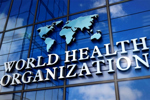ARTICLES BY TIM SANDLE
-
FDA Issues Final Guidance For pH Adjuster Waiver Requests For Generic Drugs12/11/2025
The FDA has issued a final guidance, Considerations for Waiver Requests for pH Adjusters in Generic Drug Products Intended for Parenteral, Ophthalmic, or Otic Use.
-
EMA Issues Paper On Qualifying Non-Mutagenic Impurities For Drug Toxicological Safety2/28/2025
There has been limited guidance for assessing new or elevated impurity levels. To address this, the EMA has issued a "reflection paper" to consider what is needed for a safety evaluation and how to make assessments. The public comment period ends April 30.
-
5 Characteristics Of Forward-Thinking Microbiology Labs In 202512/6/2024
Improving microbiology laboratory efficiency is a continuum. Here are five tech-forward trends that will impact cost and efficiency in 2025.
-
Enhanced Risk? EMA Issues New Guidance For OSD Co-processed Excipients10/9/2024
In recent years, there has been a drive toward the use of co-processed excipients to aid leaner manufacturing. This has prompted the European Medicines Agency (EMA) to develop a new guidance document, Questions and Answers regarding co-processed excipients used in solid oral dosage forms (H & V). The public consultation period is open until the end of 2024.
-
EMA Issues New Draft Guideline: Chemistry Of Active Substances9/3/2024
The European Medicines Agency (EMA) has issued a new draft guideline to set out the type of information required for the manufacture and control of active substances used in a medicinal product. The public consultation period ends Jan. 31, 2025.
-
ChatGPT-4: Practical Applications For The Biopharma Laboratory7/3/2024
AI has made its way into the biopharma laboratory, and ChatGPT-4 is the most popular. Do you know the capabilities that this tech can deliver?
-
EMA Updates Guidance On Inhalation And Nasal Product Quality5/29/2024
The EMA has issued a new draft guideline, “Guideline On The Pharmaceutical Quality Of Inhalation And Nasal Medicinal Products.” The public comment period ends Oct. 31.
-
Nitrosamines: New WHO Guidance Provides Expanded Risk Assessment Considerations5/6/2024
Nitrosamines are potential contaminants of drug products. Contamination can occur from synthesizing APIs and excipients, from leaching into the product from primary packaging, and more.
-
Getting Generic Drugs Right: FDA Revises ANDA Guidance2/14/2024
To improve the quality of abbreviated new drug applications (ANDAs) and to ensure improved consistency, the FDA has developed a new guidance to assist applicants in preparing and submitting amendments to tentatively approved ANDAs or in seeking final approval. This new guidance replaces the previous September 2020 version.
-
WHO Guidance Seeks To Reduce Antimicrobials In Pharmaceutical Liquid Waste1/11/2024While most nations have regulations and emission standards regarding industrial waste containing antimicrobials, there is no globally accepted framework. This new WHO guidance seeks to establish an independent, scientifically derived framework for applying targets to manage discharges from antibiotic manufacturing facilities. The public comment period ends Jan. 26, 2024.










